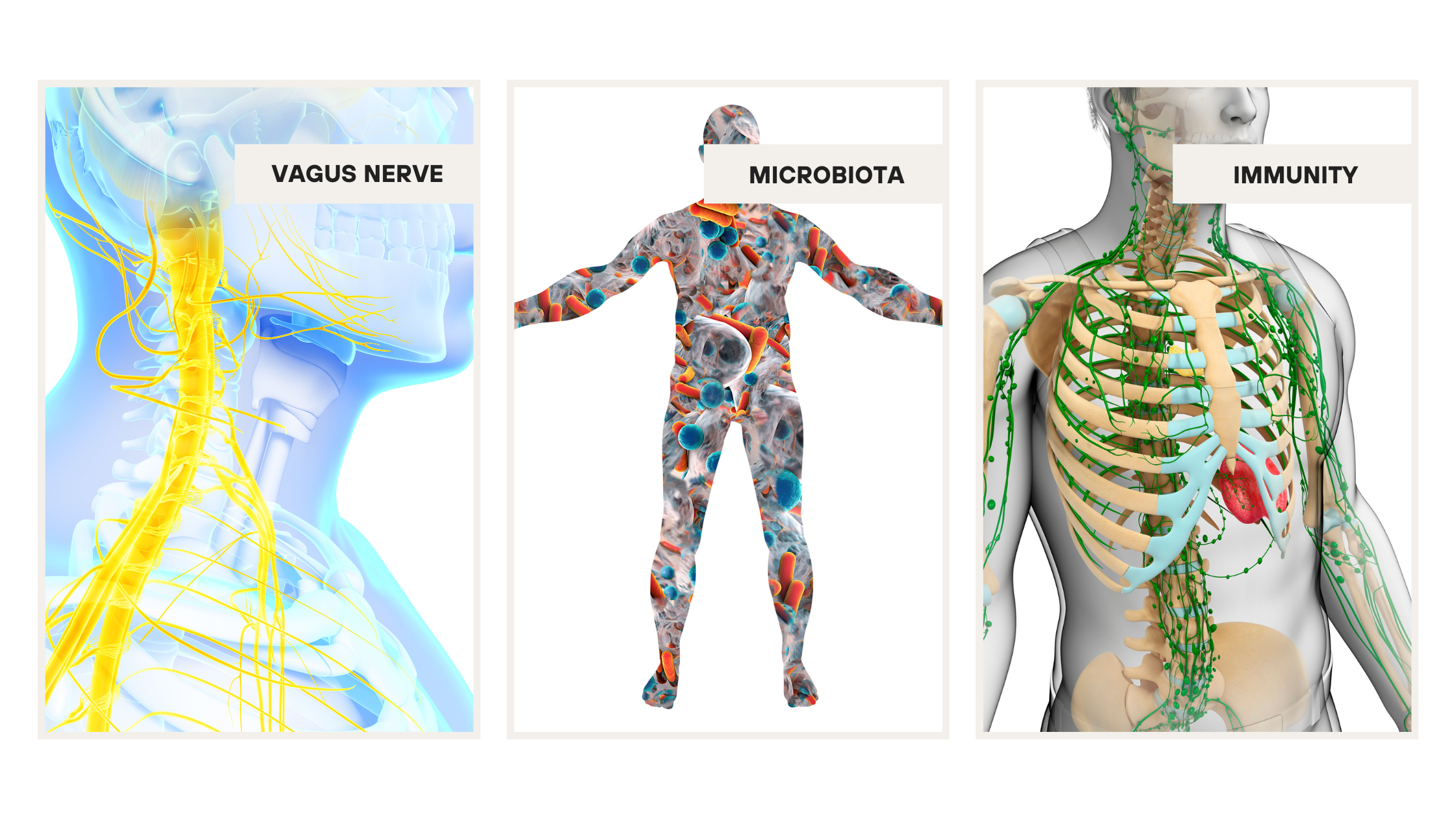The Gut-Brain Connection
How Nutrition Impacts Mental Health
In recent years, research has unveiled a fascinating link between our gut and our brain, often referred to as the gut-brain axis. This connection is more than just a biological curiosity; it has profound implications for our mental health. As a clinical nutritionist, understanding and leveraging this connection can be a game-changer for improving your well-being. Let's dive into how nutrition impacts mental health through the gut-brain connection.
The gut-brain axis is a complex communication network that links your gastrointestinal tract and your brain. This connection is bi-directional, meaning signals flow back and forth between the gut and the brain. The primary pathways of this communication include:
Vagus Nerve - The main highway for signals travelling between the gut and the brain.
Gut Microbiota - Trillions of microorganisms in the gut that produce neurotransmitters like serotonin and dopamine.
Immune System - Gut health impacts the immune system, which in turn affects brain function and mood.
Understanding these pathways helps us appreciate how our diet can influence our mental state.
The Role of Gut Microbiota in Mental Health
Your gut is home to a diverse community of microorganisms known as the gut microbiota. These tiny inhabitants play a crucial role in various bodily functions, including mental health.
Here’s how:
Neurotransmitter Production. Gut bacteria produce neurotransmitters such as serotonin, which helps to regulate mood and anxiety. In fact, about 90% of serotonin is produced in the gut.
Inflammation Regulation. A healthy gut microbiota can reduce inflammation, which is linked to depression and anxiety. An unhealthy microbiota will increase inflammation, compromise gut barrier function, and even produce toxic by-products.
Barrier Function. The gut lining acts as a barrier that prevents harmful substances from entering the bloodstream, thus protecting brain health.
An imbalance in gut microbiota, known as dysbiosis, can negatively impact these functions, leading to mood disorders and many other health issues.
Nutrition Strategies for a Healthy Gut and Mind
Maintaining a balanced diet is key to promoting a healthy gut microbiota and, by extension, a healthy mind. Here are some nutrition tips to enhance your gut-brain connection:
Eat Prebiotic and Probiotic Foods
Prebiotics (found in foods like garlic, onions, and bananas) feed the good bacteria in your gut. Probiotics (found in yogurt, kefir, and fermented foods) introduce beneficial bacteria to your system.
Include Omega-3 Fatty Acids
Omega-3s, found in fatty fish, flaxseeds, and walnuts, have anti-inflammatory properties and support brain health and cognitive function.
Consume Fibre-Rich Foods
Fibre, found in fruits, vegetables, and whole grains, is crucial for gut health. It aids digestion, detoxification and feeds beneficial gut bacteria.
Limit Processed Foods and Sugars
Processed foods and sugars can harm gut bacteria and promote inflammation, negatively affecting your mental health.
Stay Hydrated
Water is essential for digestion, detoxification and nutrient absorption, both of which are important for maintaining a healthy gut-brain axis.
Real-Life Benefits of a Healthy Gut-Brain Connection
Implementing these nutritional strategies can lead to noticeable improvements in mental health. Clients who focus on gut health often report:
Reduced Anxiety and Depression. Balanced gut microbiota can lower inflammation and produce more mood-stabilizing neurotransmitters.
Improved Focus and Clarity. A healthy gut can improve cognitive function and concentration.
Stress Management. Nutrient-rich diets help regulate stress hormones and improve resilience.
The gut-brain connection is a powerful link that underscores the importance of nutrition in mental health. By focusing on a gut-friendly diet, you're not just eating better—you're thinking and feeling better too. If you're looking to explore personalised nutrition to boost your gut and brain health, consider booking a consultation with a clinical nutritionist.
This blog post is brought to you by Rebecca, your trusted clinical nutritionist in the Whitsundays, QLD. Explore our 12-week Metabolic Balance program and other services designed to improve your digestive health, hormone balance, skin health, and more.



